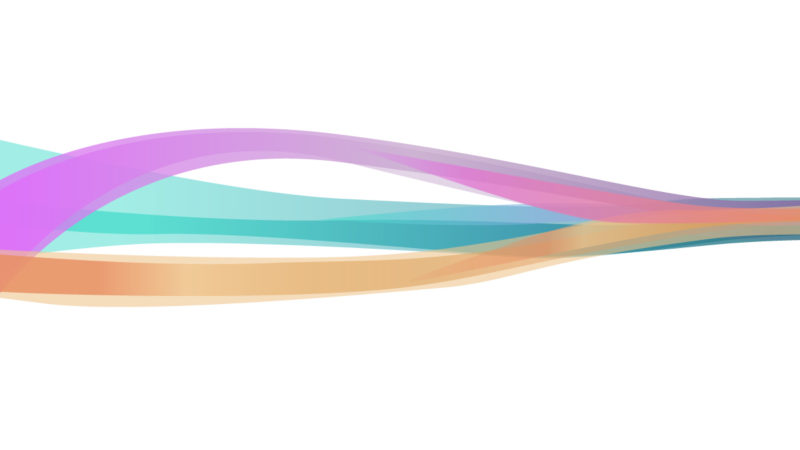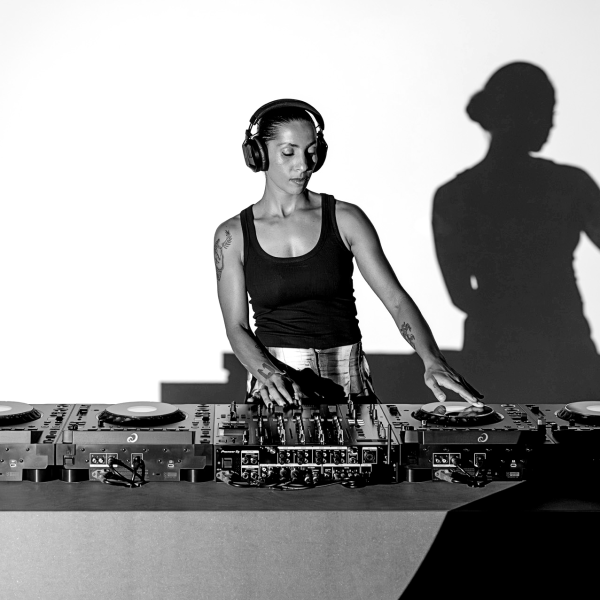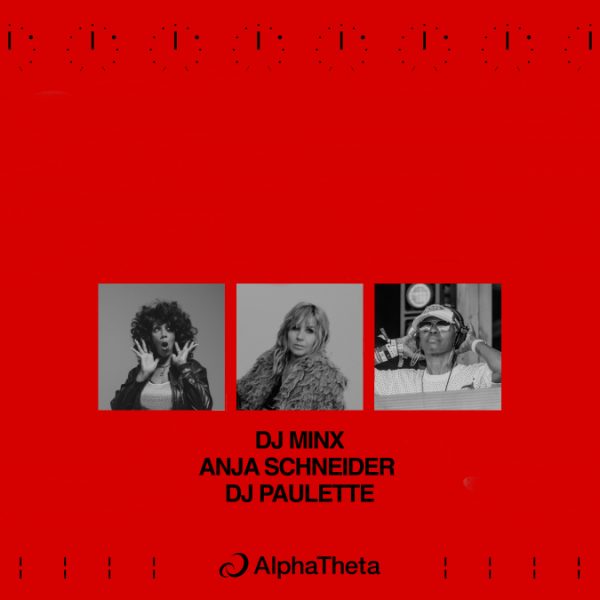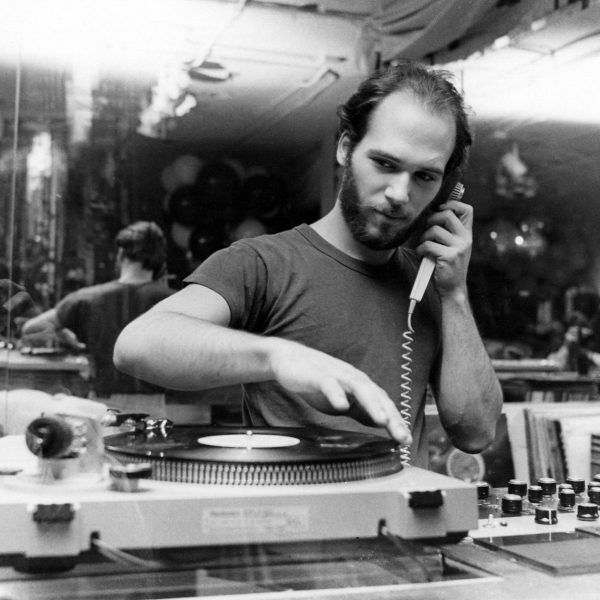So there’s a very good chance these DJs experienced flow when they were performing at their best, with over 75% of them in agreement with five of the six questions. As many as 96% agreed that they experienced an intense and focussed concentration on the present moment.
But what about the question, “Did you feel like your ego (or inner critic) was silenced or more quiet than usual?”
48% agreed in this instance, with 35% saying “maybe.” It could be that the word “ego” disorientated the DJs. The term is more widely understood in relation to “egotism,” an exaggerated sense of self-importance, rather than as a synonym for the self. Of course, it could also be that a silenced or quieter ego isn’t something a majority of DJs experienced.
More clear is the sheer sense of positivity and fulfilment the DJs reported in the open question: “How would you summarise the experience?” Here’s a selection:
- “Fulfilling, meaningful and very spiritual.” – Nicole Moudaber
- “It’s a very similar experience to dancing. Just being in the ‘zone’ where it almost feels like someone else is doing the thing for you.” – Tzusing
- “To see natural reactions from those immersed in the experience with me gave me goosebumps… A shared love in the music for that moment makes me feel most connected to others.” – Kitty Amor
- “Feeling extremely natural and like everything was clicking and going ahead and I was sort of just along for the ride.” – Hodge
- “The flow is definitely fuelled by the raver, when the audience is with you and you’re fully immersed, there is no better feeling for a DJ.” – Shenin Amara
- “It’s like the thought process is taken away and everything becomes second nature. When everything unfolds perfectly and effortlessly as if being guided by a higher force.” – Dave Seamen
- “A three hour set finished up in what felt like an hour.” – Donald’s House
- “It was like being in a transcendental state of mind, there was no worry or anxiety. The tracks literally chose themselves in a way where the ego was just not getting involved. It was smooth, seamless and timeless. The whole set was like stepping out of time.” – Tensuhi / Tracie Storey
- “I call it the ‘one vibe.’ I strive to be in the present moment as much as possible, it’s one of the secrets to this universe.” – Blond:ish
“Spiritual,” “a higher force,” “a transcendental state of mind”—these responses bring to mind mystery, epiphany and life-changing/affirming experiences. Coincidentally, the UK artist Objekt wrote about this on his Instagram last month. Although he didn’t mention flow directly, he described a gig at Nowadays in New York— “probably the best DJing experience of my life”—in glowing terms that could be described as a textbook example of flow.
Csíkszentmihályi is associated with positive psychology, the scientific study of well-being and what makes life worth living. He characterised flow as an optimal experience, moments when we’re at our very best, which can enrich our lives more generally. Research has shown flow to have positive effects on subjective well-being and on learning. Books by authors like Martin Seligman have placed flow in a context of flourishing and authentic happiness. Meanwhile, leading author-researchers like Steven Kotler and Jamie Wheal extol the virtues of flow to the point of it becoming a religion.
The social, creative and ritualistic benefits of DJing are well understood by those who participate in it. But less explored is the brain state it can induce that makes us feel like we’re touching the divine, or, on a less grandiose level, that we’re leading happy lives.
The idea for this piece was planted in the middle of last year, a point at which live DJing and dancing seemed like distant possibilities. In the UK, the nightlife industry was at the back of the queue when it came to government support, which seemed to only confirm the dim view wider society takes on club culture. Thinking about flow in relation to DJing and dancing suggested that the pandemic wasn’t just taking away a pastime—or a mindless hedonistic pursuit, as some of the public might deem it—but a key source of mental wellbeing.
“The experience itself is so enjoyable that people will do it even at great cost, for the sheer sake of doing it,” Csíkszentmihályi said of flow activities. Being aware of this transcendent but elusive brain state might help us to understand DJing, and even club culture more generally, through a different lens.
We can also deepen our understanding of flow and DJing by considering two additional characteristics that we didn’t include in the survey. Csíkszentmihályi and Jeanne Nakamura, a fellow psychologist, suggested that there’s also the balance between challenge and skills, and having clear goals and feedback.
As we know, there are many different ways to DJ, but the traditional beat-matching approach is interesting to look at in relation to the challenge-skill balance. Csíkszentmihályi essentially talked about a Goldilocks principle where, ideally, the task was not too demanding, which can cause stress and anxiety, and not too easy, which can lead to disinterest.
Even for seasoned professionals, keeping two tracks locked in the mix seems to hit a challenge-skill sweet spot. We need to be constantly alert to subtle shifts in the interplay between two tracks, tweaking their tempo, volume and EQ while reacting to what’s happening on the dance floor. It seems to be a seductive challenge that keeps us coming back for more. And in the same way that extreme sports are said to induce deeper flow states than less risky equivalents, perhaps we could guess that the same is true here of turntablists versus other DJs? Performing an intricate scratch routine requires a level of skill and concentration beyond the standard “A to B” mode of DJing.
The question of clear goals and feedback, the other condition that Csíkszentmihályi and Nakamura talked about, will change depending on the circumstances in which we’re DJing. But let’s consider the most simple scenario: a DJ trying to make people dance. In terms of flow, this feels like a powerful way to receive feedback. Where the chess player has the implications of her previous moves, the painter the results of his brushstrokes, or the golf player the accuracy of their shot, the DJ’s feedback is whether or not people are moving their bodies to the music.
However, this isn’t a simple binary event. There’s a big difference between 50 people politely shuffling and 50 people going wild. Feedback in DJing is therefore on scale. It’s perhaps helpful to frame this in terms of high risk and high reward, where shame and social stigma can be associated with failure, but success means a massive, socially connected high.
We were also struck by the idea that these experiences are often shared with people on a dance floor, who may themselves be in a state of flow. Steven Kotler, who along with his collaborator Jamie Wheal is a leading contemporary researcher into flow, points out that both “group flow” and “varying degrees of flow” have been identified. “You can be in a state of micro-flow or a lighter version of the state,” he says. “Or you can experience a state of macro-flow, where all of those core characteristics show up so strongly that the experience itself takes on otherworldly, quasi-mystical qualities—for example, time slows to a crawl and you feel one with the universe.”
When things are going well at a party the DJ might be in flow, keeping the music moving in a heightened state of focus and absorption while responding intuitively to the room. The dancers, meanwhile, are in their own states of flow, intensely rooted in the present moment with their thinking mind—the wellspring of their daily worries—having melted into the background.
The inevitable question, then, is how can we regularly find flow in our DJ sets? If you’ve experienced flow, it may have seemed to stem from random good fortune. In reality, although there are plenty of variables at play, it’s very much possible to consciously create conditions to increase occurrences of flow.
Let’s take some of the general principles flow research has uncovered and apply them to DJing.
- Think about the space. The environment should be as optimal as possible. Playing in a confined room at low volume will make it harder to lose yourself in the task. The right lighting and temperature can do wonders for immersing ourselves in our environment.
- Think about the setup. A dodgy headphone connection or disorganised music collection could both be barriers to flow. You could still play a satisfying set with both of these issues, but the point of this exercise is to remove potential disruptions.
- Minimise distractions. Some DJs like to socialise while they play, which is of course fine. But flow tends to occur when we focus exclusively on the task at hand.
- Be mindful. Some basic meditation-style techniques can help here. If you notice your mind wandering towards thoughts that aren’t related to DJing, gently bring yourself back to what you’re doing. And repeat.
- Set goals. If you’re learning to DJ, this might mean trying to mix three tracks perfectly in a row. If you’re gigging professionally, this might be keeping a particular section of the crowd dancing. The goal should be difficult but attainable relative to your skill level.
- Take risks. The obvious one here is to try playing unusual music for the situation you’re in. Dropping a rock track in a tech house set could be disastrous—or it could be one of your most memorable moments as a DJ.
- Take a different approach. Don’t know how to mix into the next track? Try using a technique you’ve never tried. Creative solutions are great for flow.
- Make a mission statement. “Tonight I want to keep people dancing until dawn” is a clear goal with clear feedback on its success or failure.
- Keep learning. Incorporating a new piece of equipment into your setup, using the deeper functions of your gear, or constantly discovering new sounds could all aid in the cultivation of flow.
- Immersion is key. This will differ from person to person, but whether you’re practising at home or playing the main stage, do whatever you need to be fully immersed in the task.
With all of these suggestions, remember that what works today might not work tomorrow. Flow is incredible when it’s happening but it can be elusive. The aim is to be aware of its characteristics and the conditions that might give rise to it. And this doesn’t only apply to DJs. Some of the suggestions above might apply to enjoying music on the dance floor—or more generally to our day-to-day lives. Hopefully by knowing more about what’s going on “under the hood,” we can deepen our enjoyment and appreciation of something as fundamental to us as DJing.




